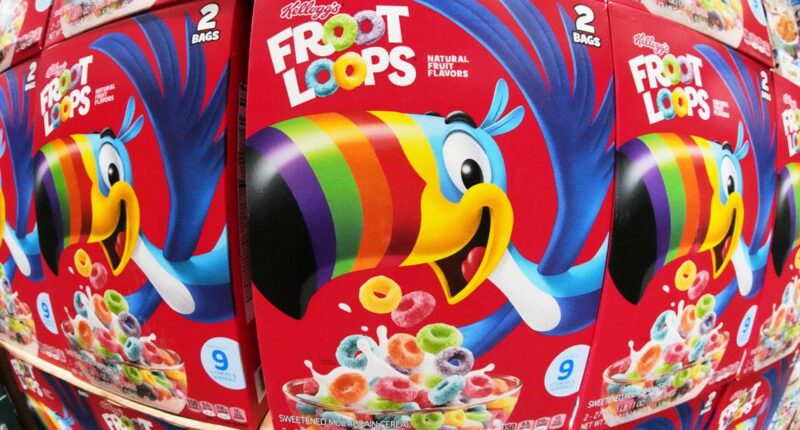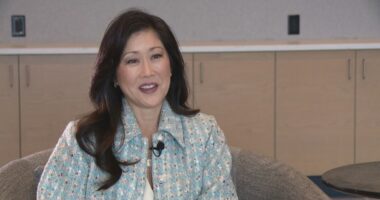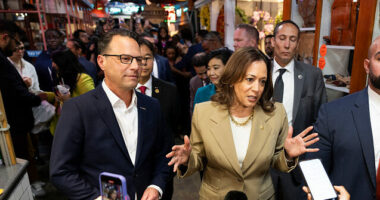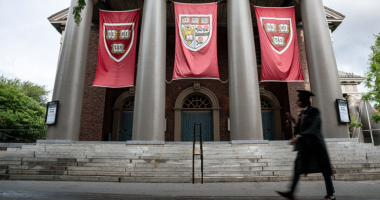Share this @internewscast.com
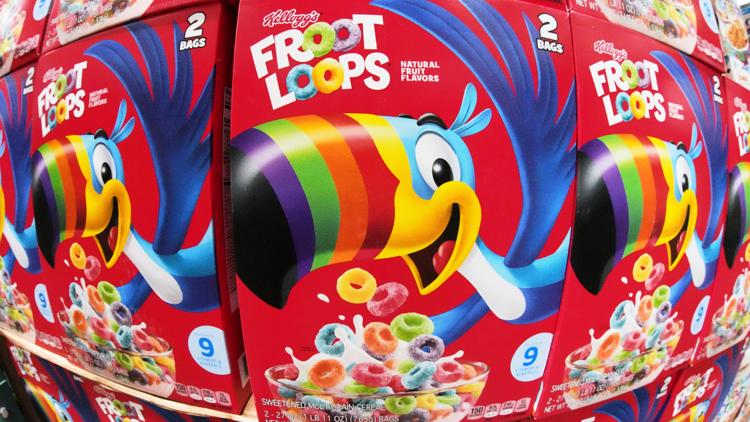
As per Kellogg’s website, 85% of the cereals they sell do not contain FD&C colors, and they haven’t used Red No. 3 in any of their products for a long time.
NEW YORK — WK Kellogg Co. has announced plans to eliminate artificial dyes from its breakfast cereals within the next two and a half years, aligning with statements from the company and the Texas attorney general. The producer of Froot Loops and Apple Jacks made this commitment amid growing demands from both the U.S. government and consumers for food companies to remove synthetic colorings from their offerings.
Texas Attorney General Ken Paxton stated on Wednesday that Kellogg had entered into a commitment with his office to “permanently eliminate toxic dyes” from its cereals by the end of 2027.
Earlier this year, Paxton began investigating whether Kellogg was breaching state consumer protection laws by continuing to use artificial dyes in colors such as blue, red, yellow, green, and orange. Around this period, U.S. health officials indicated plans to encourage food producers to voluntarily phase out petroleum-based colorings.
Both Kellogg and General Mills, another leading cereal company in the U.S., have expressed intentions to do so. General Mills subsequently joined Kraft Heinz, Nestle, Smuckers, and several other food corporations in setting target dates for the complete removal of artificial dyes from their products.
However, Paxton’s office noted that Kellogg was the first to agree to a “legally binding” commitment. “After months of meticulous investigation and negotiation, I’m honored to announce that Kellogg’s is committed to eliminating these unhealthy components from its cereals,” said the attorney general in a statement.
Details about the terms of the agreement Kellogg signed, which is legally known as an assurance of voluntary compliance, were not immediately clear. The company did not comment on it directly when reached by The Associated Press on Thursday but said it appreciates “the opportunity to work collaboratively with the Texas AG’s office and share their focus on health and wellness.”
Kellogg also pointed to its earlier commitment to phase out FD&C dyes, which are synthetic additives that the U.S. Food and Drug Administration approved for use in food, drugs and cosmetics. It said it already planned to stop launching new products with the dyes in January.
“We have announced we are reformulating our cereals served in schools to not include FD&C colors by the 2026-27 school year,” Kellogg said in an emailed statement Thursday. By the end of 2027, “we will completely remove FD&C colors from the small percentage of our foods that contain them today.”
According to Kellogg’s website, 85% of the cereal the company sells contains no FD&C colors — and none of its products have included Red No. 3 for years. Federal regulators banned that dye from food in January.
Synthetic dyes have long been used to make brightly colored cereals, drinks, candies, baked goods and even products like cough syrup. But health advocates have called for the removal of artificial dyes from foods, citing mixed studies indicating they can cause neurobehavioral problems, including hyperactivity and attention issues, in some children.
The FDA has maintained that its currently approved dyes are safe and that “the totality of scientific evidence shows that most children have no adverse effects when consuming foods containing color additives.”
Pressure on the food industry has increased since Robert F. Kennedy Jr., an outspoken critic of such synthetic additives, became President Donald Trump’s health secretary.
Copyright 2025 Associated Press. All rights reserved. This material may not be published, broadcast, rewritten, or redistributed.
